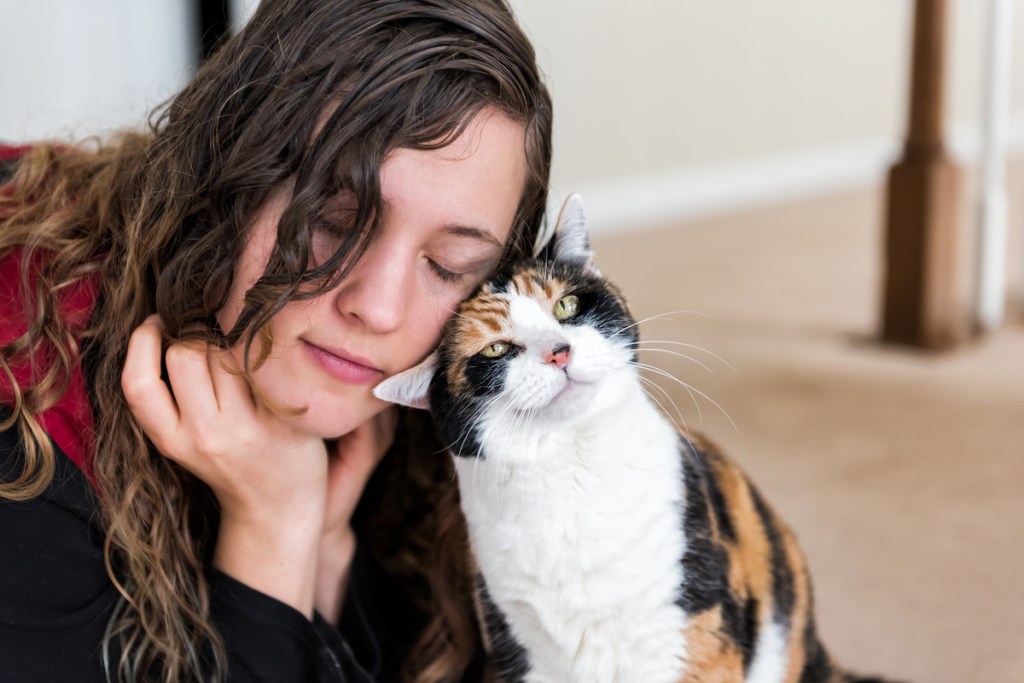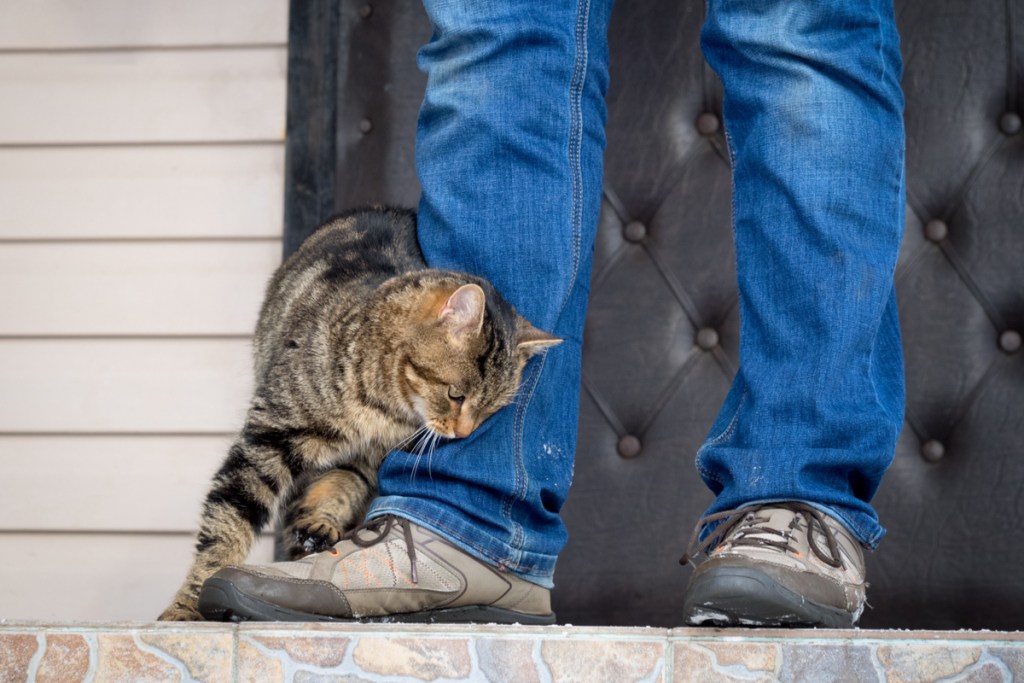If you’ve ever sat down on the couch after being at work all day, you’ve probably noticed that your cat comes over and rubs himself against your legs, or even hops up and rubs against your sides and arms. At first glance, this behavior might seem to be a display of affection, and you might think that your cat is cuddling up with you because he loves you. In fact, the real reason behind your cat’s behavior isn’t quite as flattering. So why do cats rub themselves against you? It all has to do with your cat’s instincts and how he relates to other cats.

What cats are doing when they rub against you
According to Pet MD, the behavior of rubbing against you or other objects is your cat’s way of using her sense of smell to relay and distribute information about the environment. When your cat rubs her head against you, she’s marking you with her scent. Your cat has scent glands all over her head and neck, including in her cheek, chin, and forehead, as well as on the base of her tail. When your cat rubs against you, she’s leaving behind her scent.
Your cat who knows you well may mark you, but a cat who’s meeting you for the first time may also rub against you, marking you but also gathering information about you. Since the scent doesn’t stay behind for all that long, a cat who knows you well may repeatedly mark you to make sure her scent remains.
How cats stake their claim by rubbing
This rubbing and marking process isn’t necessarily saying, “I love you,” but is more grouping you into other objects that also share your cat’s scent. This is reflected when you see cats who live together rub against each other. They’re spreading their communal scent and are also indicating acceptance of one another.
Your cat’s act of rubbing up against you is, essentially, a way of marking you as his territory. Leaving his scent behind tells other cats that you’re already his.

Additional ways cats stake their claim
Rubbing isn’t the only way that cats communicate that you or an object are theirs. Purina notes that cats use scratching in a similar way, rubbing the scent glands on their paws against objects and leaving their scent behind.
That’s why your cat may scratch at your sofa or doorjamb; these areas see high traffic and carry many scents. Your cat is scratching to mark them as part of her territory, too.
If your cat’s scratching becomes a problem, you can discourage it by placing scratching posts in front of the areas that your cat is targeting. You might also have luck using tape on your furniture since the sticky surface will help to prevent your cat from scratching at that area.
In some cases, your cat might pee on objects to mark her scent. While much more inconvenient and undesirable than rubbing and scratching, peeing on things also transfers your cat’s smell. If your cat starts peeing on objects, she’s likely trying to mark them and establish that they’re her territory. Peeing is sometimes prompted by bringing a new cat into the home, or by other changes that make your cat feel unsettled and insecure.
If your cat starts peeing on your items and in your home, you’ll need to try to address the changes that are making her feel stressed. Peeing can also be prompted by physical issues like urinary tract infections, so be sure to schedule an appointment with your vet to have your cat evaluated.
Cats show their affection in many ways, and while your cat rubbing up against you might seem like he’s looking to cuddle, that’s not quite the reason behind this behavior. Instead, your cat is marking you as his and showing other cats that you’re a part of his territory. Your cat’s efforts to claim you might not be driven by the affection you’d imagined, but be flattered. If your cat is taking the time to mark you as his, then you’re something he cares about. Want to know if your cat is showing you real affection? Look for other signs, like his seeking you out to spend time with you, his purring when you’re around, and his meowing at you, instead.


